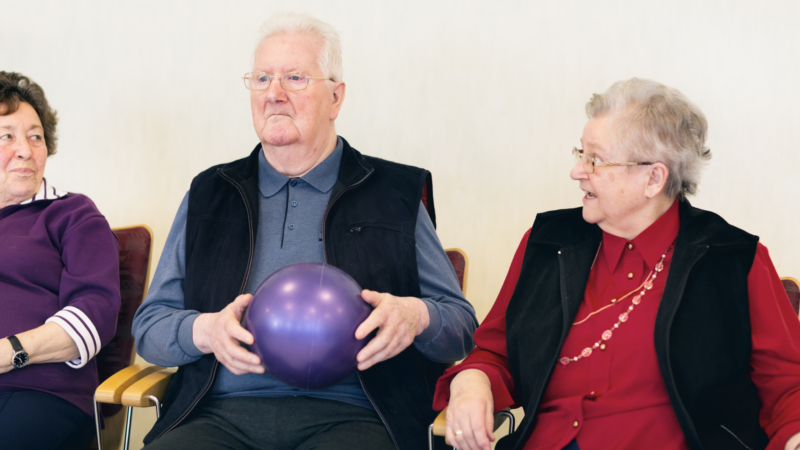How physiotherapy can help to tackle Alzheimer’s disease
Early intervention physiotherapy for Alzheimer’s disease can work wonders for older adults.
Most of us know about Alzheimer’s disease, whether it’s because someone we know has been diagnosed with it, or we have read about it. More than 450,000 people in Australia are affected with dementia, 70 per cent of whom have Alzheimer’s disease, a common type of dementia.
Many people are aware of the memory loss associated with Alzheimer’s, but the condition also has a physically debilitating aspect.
People diagnosed with the illness slowly start losing their ability to do simple daily activities such as bathing, using the toilet, eating or even dressing. One of the major issues is losing their strength and balance.
How can physiotherapy help?
Although there is no cure, research has shown that early intervention of physiotherapy for people living with Alzheimer’s disease can slow the decline of physical as well as cognitive function.
1. Exercise can help improve strength, balance and – in turn – walking ability. A physiotherapist is trained to design an exercise program suited to the individual, according to their function, progression of the disease and mental status. In the early and middle stages of the disease, physiotherapy can help to keep the person mobile and safe for a longer time through an individually designed balance and strengthening program. As the disease progresses, the chances of having falls related to confusion and loss of balance or strength increases. Early balance training for walking on uneven surfaces and other situations can reduce the chance of falls, and in turn the chance of serious injury.
2. A physiotherapist can also train people in strategies involving simple daily tasks such as lying to sitting or sitting to standing. These may sound simple, but at a certain stage, they become hard to perform for people living with Alzheimer’s. A physiotherapist can help by breaking them into short and simple steps and helping to retrain the movement pattern.
3. A physiotherapist can also teach care-givers how to help the affected family member. Training family members or care-givers on proper techniques of assistance, such as lifting and transferring someone in a safe manner, can be extremely valuable education, particularly as the disease progresses. It can also involve teaching the proper use of assistive devices such as walking aids and reaching tools.
In the later stages of Alzheimer’s, a physiotherapist will focus on preserving the ability to do daily activities for as long as possible. This in turn helps to reduce the burden on the care-givers and family with a focus on keeping the affected individual independent for longer.
Raising awareness about early intervention plays an important part in improving the quality of life for those living with Alzheimer’s.
The Physio Co specialises in care for older adults and has a wealth of experience in helping those living with Alzheimer’s disease. Call our office today to find out how we can help you or your loved one.
Article written by physiotherapist Kaushambi Sanyal



 1300 797 793
1300 797 793